Thesis Writing
Thesis Proposal

How to Write a Thesis Proposal - Sample Proposals and Tips!
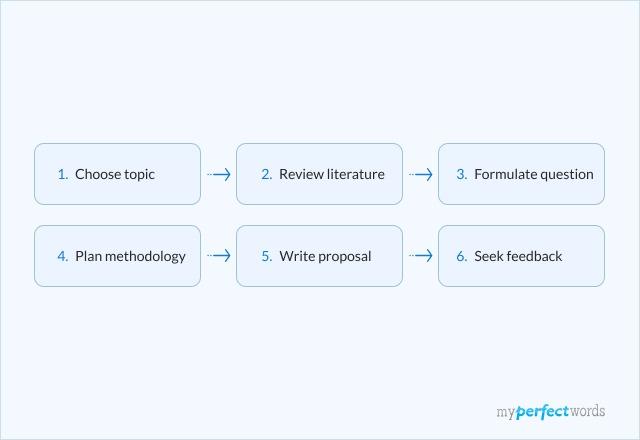
People also read
Thesis Writing - An Ultimate Writing Guide With Tips & Examples
Thesis Introduction: A Step-by-Step Guide With Examples
Interesting Thesis Topics & Ideas To Get Started
Thesis Format Essentials: Structure, Tips, and Templates
Are you struggling with making a thesis proposal, not knowing where to start?
You're not the only one.
Creating a thesis proposal can feel confusing. But think of a thesis proposal as your guide for your academic research. It helps you plan your research and keeps you on the right path. If the thought of a thesis proposal has left you feeling unsure, don't worry.
This blog is here to help you understand how you can create a thesis proposal that serves your research project right!
So, let’s begin!
- 1. What is a Thesis Proposal?
- 2. What Does A Thesis Proposal Include?
- 3. How to Write a Thesis Proposal
- 4. Thesis Proposal Format
- 5. Sample Thesis Proposal
- 6. Thesis Proposal Writing Tips
What is a Thesis Proposal?
The thesis proposal is a type of detailed summary and outline of your thesis or research work. It provides a layout regarding how you will transform an unformed idea into a thoroughly researched concept.
Moreover, it also identifies the problem, questions, and methods you will use in your thesis. All students are required to submit this mind map to the supervisor. This is how they will get a comprehensive idea of the research journey.
A good proposal will prove that your thesis or dissertation is relevant and important. Similarly, it shows that you have adopted the right approach and tools to solve the problem.
- The following are the primary purposes of writing a thesis proposal.
- It shows that the chosen topic addresses a significant problem.
- It demonstrates an organized plan to collect or obtain data for solving the problem.
- It identifies data collection methods.
Lastly, it states the significance of the thesis indicating how it will contribute to the field.
What Does A Thesis Proposal Include?
A well-structured thesis proposal consists of several critical elements, each playing a distinct role. Here's a concise breakdown of the parts of thesis proposal:
Introduction (1 page)
This is where your proposal begins.
It opens with a clear definition of your research's topic area, followed by an explanation of its relevance and significance within the context of your field.
The introduction also establishes the scope of your research study by defining its boundaries and limitations.
Literature Review (7-8 pages)
The literature review is a substantial section, comprising four key components.
Firstly, it offers an overview of the existing body of literature related to your research topic. Secondly, it addresses theoretical frameworks and methodological research designs relevant to your area of study, demonstrating your familiarity with the field.
Thirdly, it emphasizes the gaps in the literature, showcasing areas that require further investigation and justifying your research.
Research Question (1-2 pages)
In this section, you formulate a specific research question that your study will seek to answer.
The research question serves as the focal point of your research. You also explain how your entire research design aligns with and is structured around this central question.
Methodological Design (1-2 pages)
The methodological design section is critical for outlining how you plan to conduct your research.
It encompasses several pivotal aspects. You describe your methodological approach ( qualitative , quantitative , or a combination). You detail your participant access strategy and the number of cases to be included.
You specify case selection criteria, research timeline, data collection methods, data coding, analytics, and other relevant factors.
References
This is your bibliography, listing all authors cited within your literature review. It validates your sources and provides a solid foundation for your proposed research.
Each of these components is crucial in creating a robust and structured framework for your thesis proposal.
How to Write a Thesis Proposal
Writing a thesis proposal is a structured process that involves several key steps, each of which plays a vital role in creating a successful proposal. Let's break it down:
Step 1 - Begin with Outlining
Start by outlining the information you've gathered. This step is crucial for both you and your supervisor. It provides a roadmap for your thesis.
By carefully outlining the parts of your proposal, you can guide yourself while drafting the document.
Step 2 - Know the Proposal Structure
Familiarize yourself with the structure of a proposal.
The major sections usually include an introduction, methodology, significance, data explanation, conclusions, and references. Understanding this structure is key to a well-organized proposal.
Step 3 - Plan Your Writing Process
It's important to organize your proposal meticulously. This helps you get a clear idea of how to write it. Many proposals get rejected because students don't plan their writing process. Plan the flow of your writing and stick to it. Here's a typical flow:
- Develop a proposal outline.
- Prepare visuals like charts or tables.
- Introduce the topic.
- Describe your chosen methodology.
- Explain why your research is significant.
- Present your data.
- Draw conclusions from your research.
- Cite your references.
Step 4 - Writing the Proposal Draft
Once you've planned the writing process, it's time to begin your final proposal draft. Use a formal writing style, but make sure to use simple words.
This makes it easier for your audience to read and understand. Also, use first-person references as needed, but consult your professors before writing a thesis statement.
Step 5 - Proofread Your Proposal
A good thesis proposal should be free of typos and other grammatical mistakes.
These errors can distract your readers from your actual problem statement. To ensure a polished proposal:
- Read the proposal aloud to identify grammar and spelling mistakes, along with any issues with sentence structure.
- Avoid proofreading immediately after writing; wait a day or two for a more objective view.
- Seek input from someone with a strong understanding of the material.
- Utilize an online spell checker for added accuracy.
Following these steps will help you craft a well-structured and error-free thesis proposal, increasing the likelihood of your proposal being accepted.
Refer to the following sample to understand the complete writing process.
Thesis Proposal Format
The format of the thesis paper proposal typically follows the below-given pattern.
- Title Page
The title page includes the research title, student and supervisor’s name, along with the submission date.
- Table of Contents
It gives a complete layout of the proposal by stating the headings and subheadings with their page numbers.
- Introduction
The thesis introduction highlights the historical background of your research. It also provides a brief overview of the thesis topic and the motivation behind choosing it.
- Statement of the Problem
It provides a clear statement that briefly defines the purpose of the study. Check out the below sample for a better understanding.
Sample Statement of the Problem in Thesis Proposal
- Theoretical Framework
Here, the research problem will be set within the framework of a theory. Moreover, it will also identify and define the terms conceptually.
- Literature Review
It includes the review of the available literature on the topic to establish credibility. Keep in mind; this section must be at least 15 pages.
- Research Objectives
This section states the main objectives that you want to achieve in the research. Similarly, it will also mention the hypothesis and the expected outcome.
- Methodology
It states the methodological approaches that will be used to achieve the objectives. It will also provide details about how the experiments will be conducted to test the hypothesis.
- Evaluation of Research Findings
It briefly discusses how the research findings and outcomes will be evaluated.
- Timetable for Completion of the Thesis
This section includes the dates for:
- Completion of research
- The first draft of the thesis
- Final draft
Cite all the primary and secondary sources in the reference list along with their codes. Also, choose a citation style after consulting with your professor.
- Other Instructions
The other format instructions include the following aspects.
- Word Count: 5000 words maximum.
- Font Style and Size: Times new roman, Arial - 12pt.
- Line Spacing: 1.5 for text, single-spaced for quotations.
- Margins: It should be set to 1.25 inches for left/right and 1 inch for top/bottom.
- Page Numbers : It must be in Roman numerals and placed at the bottom center of each page.
- Citation: APA, MLA, Chicago.
Here’s a thesis proposal outline that you can use as reference:

Need to know more about formatting your thesis? Explore this comprehensive blog to gain a deep understanding of thesis format !
Sample Thesis Proposal
Following are some examples and samples for you to get a detailed idea.
Thesis Proposal Sample
Thesis Proposal Example
Thesis Proposal Template
Undergraduate Thesis Proposal Example
Master Thesis Proposal Example
Phd. Thesis Proposal
Architectural Thesis Proposal
Thesis Proposal Writing Tips
Here are some tips for writing a perfect thesis proposal.
- Know all the requirements before you start writing a proposal. It includes length, font, spacing, etc.
- Use simple words so that the readers can understand easily.
- Always check your proposal and carefully proofread for mistakes.
- Write answers and solutions to your problem in the conclusion as it provides a base for future research.
- Keep a record of your referencing from the start and triple check it before submitting the proposal.
- Plan, organize, and structure your proposal within a clearly defined deadline.
- Use pictures and graphs to illustrate background material, sample data, and analysis techniques.
Getting started on your thesis? Read here and choose from an extensive list of thesis topics !
So, you now have the key knowledge to create a strong and meaningful thesis proposal.
However, if you still find yourself facing challenges or require further assistance, don't hesitate to reach out.
Our essay help is here to support you every step of the way.
With our experienced team of professionals, we guarantee to provide you with top-quality thesis help.
Whether you need us to deliver a complete thesis or a proposal, our thesis writing service is here for you 24/7. So, order now!

Write Essay Within 60 Seconds!

Caleb S. has been providing writing services for over five years and has a Masters degree from Oxford University. He is an expert in his craft and takes great pride in helping students achieve their academic goals. Caleb is a dedicated professional who always puts his clients first.

Paper Due? Why Suffer? That’s our Job!
Keep reading

Think of yourself as a member of a jury, listening to a lawyer who is presenting an opening argument. You'll want to know very soon whether the lawyer believes the accused to be guilty or not guilty, and how the lawyer plans to convince you. Readers of academic essays are like jury members: before they have read too far, they want to know what the essay argues as well as how the writer plans to make the argument. After reading your thesis statement, the reader should think, "This essay is going to try to convince me of something. I'm not convinced yet, but I'm interested to see how I might be."
An effective thesis cannot be answered with a simple "yes" or "no." A thesis is not a topic; nor is it a fact; nor is it an opinion. "Reasons for the fall of communism" is a topic. "Communism collapsed in Eastern Europe" is a fact known by educated people. "The fall of communism is the best thing that ever happened in Europe" is an opinion. (Superlatives like "the best" almost always lead to trouble. It's impossible to weigh every "thing" that ever happened in Europe. And what about the fall of Hitler? Couldn't that be "the best thing"?)
A good thesis has two parts. It should tell what you plan to argue, and it should "telegraph" how you plan to argue—that is, what particular support for your claim is going where in your essay.
Steps in Constructing a Thesis
First, analyze your primary sources. Look for tension, interest, ambiguity, controversy, and/or complication. Does the author contradict himself or herself? Is a point made and later reversed? What are the deeper implications of the author's argument? Figuring out the why to one or more of these questions, or to related questions, will put you on the path to developing a working thesis. (Without the why, you probably have only come up with an observation—that there are, for instance, many different metaphors in such-and-such a poem—which is not a thesis.)
Once you have a working thesis, write it down. There is nothing as frustrating as hitting on a great idea for a thesis, then forgetting it when you lose concentration. And by writing down your thesis you will be forced to think of it clearly, logically, and concisely. You probably will not be able to write out a final-draft version of your thesis the first time you try, but you'll get yourself on the right track by writing down what you have.
Keep your thesis prominent in your introduction. A good, standard place for your thesis statement is at the end of an introductory paragraph, especially in shorter (5-15 page) essays. Readers are used to finding theses there, so they automatically pay more attention when they read the last sentence of your introduction. Although this is not required in all academic essays, it is a good rule of thumb.
Anticipate the counterarguments. Once you have a working thesis, you should think about what might be said against it. This will help you to refine your thesis, and it will also make you think of the arguments that you'll need to refute later on in your essay. (Every argument has a counterargument. If yours doesn't, then it's not an argument—it may be a fact, or an opinion, but it is not an argument.)
This statement is on its way to being a thesis. However, it is too easy to imagine possible counterarguments. For example, a political observer might believe that Dukakis lost because he suffered from a "soft-on-crime" image. If you complicate your thesis by anticipating the counterargument, you'll strengthen your argument, as shown in the sentence below.
Some Caveats and Some Examples
A thesis is never a question. Readers of academic essays expect to have questions discussed, explored, or even answered. A question ("Why did communism collapse in Eastern Europe?") is not an argument, and without an argument, a thesis is dead in the water.
A thesis is never a list. "For political, economic, social and cultural reasons, communism collapsed in Eastern Europe" does a good job of "telegraphing" the reader what to expect in the essay—a section about political reasons, a section about economic reasons, a section about social reasons, and a section about cultural reasons. However, political, economic, social and cultural reasons are pretty much the only possible reasons why communism could collapse. This sentence lacks tension and doesn't advance an argument. Everyone knows that politics, economics, and culture are important.
A thesis should never be vague, combative or confrontational. An ineffective thesis would be, "Communism collapsed in Eastern Europe because communism is evil." This is hard to argue (evil from whose perspective? what does evil mean?) and it is likely to mark you as moralistic and judgmental rather than rational and thorough. It also may spark a defensive reaction from readers sympathetic to communism. If readers strongly disagree with you right off the bat, they may stop reading.
An effective thesis has a definable, arguable claim. "While cultural forces contributed to the collapse of communism in Eastern Europe, the disintegration of economies played the key role in driving its decline" is an effective thesis sentence that "telegraphs," so that the reader expects the essay to have a section about cultural forces and another about the disintegration of economies. This thesis makes a definite, arguable claim: that the disintegration of economies played a more important role than cultural forces in defeating communism in Eastern Europe. The reader would react to this statement by thinking, "Perhaps what the author says is true, but I am not convinced. I want to read further to see how the author argues this claim."
A thesis should be as clear and specific as possible. Avoid overused, general terms and abstractions. For example, "Communism collapsed in Eastern Europe because of the ruling elite's inability to address the economic concerns of the people" is more powerful than "Communism collapsed due to societal discontent."
Copyright 1999, Maxine Rodburg and The Tutors of the Writing Center at Harvard University
Thesis Helpers
Find the best tips and advice to improve your writing. Or, have a top expert write your paper.
How to Write a Great Thesis Proposal The Easy Way

Table of Contents
- 1. What Is A Thesis Proposal?
- 2. Thesis Proposal Template
- 3.1. Craft Your Abstract
- 3.2. Choose Topic and Working Title
- 3.3. Create Your Introduction
- 3.4. Write the Thesis Research Questions
- 3.5. Present Your Literature Review
- 3.6. Write Down the Methodology
- 3.7. Provide Your Timeline
- 3.8. Craft A Conclusion
- 4. Thesis Proposal Example
- 5. Thesis Proposal FAQ
What Is A Thesis Proposal?
A thesis proposal is the link-bridge to the main thesis, laying out the plan of how you will conduct the research. This way, the professors (assessment committee) will know that you are on the right path and got the right tools to get to the final destination.
The first step is developing a thesis proposal outline, commonly referred to as a thesis proposal template, which will help you do your project. It provides a clear thesis proposal format so that you can easily know what to do at what stage. Your proposal should be structured on a number of key elements, each of which should assist you to define the main project.
Thesis Proposal Template
- Abstract . This is a summary of the entire proposal.
- Define the topic of the proposal. The topic is the title of the project and gives the reader a general idea of what the thesis is all about.
- Write the introduction . The introduction helps to bring out the main issues in the thesis as well as its significance.
- Craft your research questions. These are the questions that you will be seeking to answer in the thesis.
- Review the related literature. This is a comprehensive analysis of existing literature on the topic you are working on.
- Methods . These are the theoretical approaches and methods that will be used to do the study.
- Timeline . In this part, you outline the time required for doing your study.
- Conclusion . This is the last part of your proposal and is used to give the anticipated results from the study.
How to Write a Thesis Proposal
A thesis proposal requires comprehensive research, preparation, and a well-defined final destination. Here is a step-by-step guide to help you craft thee best proposal for your thesis.
“ The differences in communication styles between men and women have been a topic of interest in the research world for many years. These differences may lead to miscommunication, conflict, and even dissatisfaction between couples. This study analyzes the communication styles among genders, more specifically among married couples. It questions how differences in communication styles between married couples married five years or less affect marital satisfaction. …”
Discuss the topic with your supervisor. Your supervisor can help you to refine the topic further, and give you the assurance that you are headed in the right direction. He/she will also assist you in grasping the complexities to anticipate along the way and the best way to approach them. See a good thesis proposal example topic.
“ A Detailed History of Halloween and King of Gourds: A Study of Horror Symbolism”
“ The first spooky faces were carved on pumpkins by rats, although considered inferior, mimics were later done by people. When rats brought the dangerous Black Death, people started connecting pumpkins to plague. Pumpkins were also used to scare off the spirits of the dead person to prevent further deaths. Soon after, Jack o lanterns were adopted across the globe as common Halloween talismans. ”
“ What effect does daily use of Facebook have on the Attention span of adolescents?” “What effect do legal approaches have on people who drink and drive in the UK?”
“ Noller (1980) comprehensively compared the effectiveness of women and men as nonverbal communicators. Being an effective communicator involves both encoding and decoding messages. Noller argued that w omen have a natural tendency to be more expressive. He added that men tend to make more errors than women when encoding messages.”
Theoretical approaches. Analytical framework. Formulas and equations. Experiments. Philosophies.
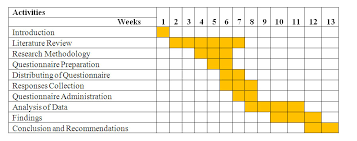
“Pumpkins are crucial Jungian symbols used to indicate the desire of the subconscious mind to control and change the feeling of horror and fear of the people’s desire to understand the unknowable. This study will expand the field of pumpkinology, while fellowship with rats will further be expanded. This will herald a new era of plague-less companionship.”
Thesis Proposal Example
Check out this thesis proposal sample from our dissertation proposal writing services to get an idea of how a good thesis proposal is supposed to look and to give you a better idea of what to do.
Significant advances in technological capacity have brought the world closer. While this is a positive aspect, it has also introduced a new kind of problem. Cyber-attacks are common features in the present internet age. Individuals and governments are at risk of being targeted, leading to studies involved in alleviating possible breakdown of society owing to its dependence on technology. The paper aims at determining the United States’ preparedness for cybercrime by looking at the nation’s best law enforcement agencies, the CIA and the FBI. By understanding the inner workings of these bodies with relation to cybercrime, the research aims at eliciting an understanding of issues that have been dealt with and showcasing emerging issues that threaten existing cybersecurity measures in a bid to improve them. Cybercrime has shown considerable advancement over the past, necessitating nationwide attention, where the Federal government should use its resources to ensure it is always up to date on matters concerning cybersecurity. In this way, the avenues used by cybercriminals are destroyed.
- Introduction
The significant advancement made in internet technology has yielded a lot of aid in the development of certain aspects of the world relating to information technology. Ranging from medical studies to an intricate internet monetary system (Bitcoin has grown significantly over the past few years) internet development is at the core of modern civilization. As such, issues relating to the internet are of particular concern, especially to developed nations such as the U.S.A. In recent years, a new form of crime has developed due to the growth in internet usage. Cybercrime is a relatively new threat in the American system. Nations such as China and Russia have evidenced an inclination towards technological development, therefore, it is important to determine America’s preparedness for issues that deal with cyber-attacks. The issue can be seen to have dire consequences for economies as cybercriminals have in the past hacked into American corporations (incidences have been blamed on Russia and China). Well-established protocols should be put in place to deal with the growing threat that cannot be alleviated by traditional means of defense. The paper aims at determining if the U.S. is prepared in case of future cyberattacks as cybercriminals continue to increase on a global scale.
Therefore, cybercrime can be deemed as the newest threat to the development of nations in the internet era, which leads to the purpose of this study. It entails an intricate knowledge of writings on the issue and methods that can be used to determine the level of risk faced by an organization or government with regard to cyber attacks. In this way, the researcher aims at ascertaining the relevance of U.S.A. security against cybercrime.
Literature Review
Many scholars argue that governments, as seen by efforts of agencies such as FBI, have limited interest in developing countermeasures for cyber threats. While these institutions confer that the next leading global giants will undoubtedly have the best virtual network connectivity, most of them do not consider cybercrime as serious. In recent years, the United States (U.S) government has come up with various legislations regarding crime committed on cyberspace. While they have elicited some kind of response from the public, enacted legislation is inadequate in curbing cybercriminals. A good example of the limited focus on cyber security is evidenced in the restrictions placed on the FBI with regard to an iPhone that had potentially useful information due to a confidentiality clause.
Such issues should be considered when coming up with legislation concerning cybercrime. Nevertheless, such an issue showcased instances where the public views technological advancements of the government in curbing crime as the FBI hacked the suspect’s phone. It is important to note that a large portion of legislation targeting cyber criminals has been developed after individuals have committed a crime. This is particularly visible in the nation’s interest in cyberspace which developed after leaked information revealed that the Chinese government had hacked government systems in the U.S.A. for an unknown period of time. As such, the FBI has failed in this regard to protect citizens from cybercriminals. A large number of crimes dealing with the internet have led to leaked information concerning individuals such as social security numbers and credit card information. Therefore, loss of such information has led to an increase in crime where identity theft plays a crucial role in highlighting cyber-crime effects. Nevertheless, governments continue to downplay the importance of cyber security, since there is no clearly accepted definition of cyber warfare, cyberattacks and cybercrime. This leads to hackers being provided the opportunity to continue with their tasks unhindered, allowing them to progress faster than the law in this respect.
Furthermore, it is necessary to point out the diversity of cybercrime to better develop the issue. Cybercrime targets anyone without any form of consideration for age, sex, or financial status. A young child whose information has been stolen could be the victim in a social security fraud case. In this case, individuals use the child’s documents to open up new lines of credit thereby giving criminals revenue to conduct their activities which negatively affects the individuals in the future and the country. For such a victim, it is difficult to determine the source of the hack since most people realize these issues when they require credit such as when applying for a loan. In the same way, an organization may be threatened with leakage of information regarding a particular product that could potentially lead to loss of revenue. Multiplier effects of such hacks are immense, cutting across the economy as some people are at risk of losing their livelihoods.
Therefore, new laws enacted to protect people against cybercrime have led to a unanimous agreement by nations. This concerns the role of cyber security in eradicating cybercrime, showcasing its importance in a country. Mohammed and Mariani also agree as they emphasize for governments to adopt better measures of cybersecurity. To deter criminals, nations need to understand the implications of cybercrime in the communities involved. Rather than wait for a criminal occurrence to develop good countermeasures, they should invest a sizeable quantity of resources to the attainment of peak cybersecurity measures.
Theoretical Framework/Approach
A large number of studies related to cybercrime have focused on the ability of a country to mitigate cybercrime based on existing research and technological capabilities. However, this study aims to develop an understanding of the American system with regard to its readiness to deal with this form of crime. In this respect, the research will focus on the government’s primary law enforcement agency tasked with interior security (F.B.I) and their ability to prevent cybercriminals from operating in the U.S. It is important to ascertain the agency’s level of development in terms of computer expertise. Moreover, the CIA is tasked with external protection of the nation. The study will thus include measures taken by the CIA. in their pursuit of a nation without cybercriminals.
However, the key to determining the relevance of a nation’s systems in curbing cybercrime is the legislature where it needs to come up with severe penalties for perpetrators of these acts. As such, individuals who wish to become hackers will be less receptive to the allure of hacking as they consider the penalty as extremely high. This requires a nation to develop strong foreign policies dealing with cybercrime. Such systems act as a deterrent to foreign nationals who would wish to hack a country such as America due to the potential legal ramifications. In this manner, the number of white hat hackers is likely to increase thus contributing to a nation’s systems to counter cybercrime. As a large pool of individuals possesses skills that could potentially aid a government to prevent future attacks, it is important to look at the criminal system and how it deals with cybercriminals. Some of these individuals possess a significant number of skills that could improve cybersecurity when used in a positive manner. Therefore, rather than work against people with good computer skills, the government will work with them to boost the nation’s cyber security. This reduces the number of people in the prison system and provides the government with a proper labor force to maintain cyber security.
Nevertheless, it is necessary to consider the impact of integrating criminals into the justice system since it might have detrimental effects. These may arise because of nationalism. Individuals who hack American systems are less likely to be of American descent. Therefore, providing them with access to sensitive information could be disastrous if they continue exhibiting radical tendencies. However, for an agency or bureau to develop proper measures of security, there is a need to understand the mindset of cybercriminals. Offering these individuals incentives such as monetary compensation and reduced jail sentences could help mitigate against the aforementioned issues.
Research Design & Methods
The research will differ from the majority of studies by concentrating on non-experimental methods, specifically correlational research where the focus is on reduction of cybercrime in the nation as security systems continue to improve. With a certain focus on the American system, the study will encompass various studies in an attempt to find a connection between them. In this way, it will be possible to determine the manner in which the U.S. has survived a myriad of cyber attacks based on existing technology. Furthermore, this approach aids in showcasing a trend of the manner in which cybercrime is developing in contemporary societies. As such, the CIA and FBI come into focus. They are deemed the paramount institutions established by the U.S. in dealing with threats, both externally and internally and thus a review of the processes employed by both institutions is helpful in gauging American readiness for cyber warfare.
In recent years, various internet-based institutions have taken over the global markets. Bitcoin threatens the very existence of conventional financial instruments as it continues on an upward trend. Other actors such as Google have grown considerably over the past decade to become giant corporations. As such, the internet continues to broaden in its application to normal day life. It is, therefore prudent that the US government improve its cyber security to protect its organizations.
Moreover, it is impossible to come up with an accurate depiction of the nation’s state in terms of cybersecurity. This is because information regarding systems used by the CIA and FBI is highly classified. As such, the study can only base its arguments on technologies used by the F.B.I., that is, those that they evidence to the public as opposed to the one’s they do not reveal. It is also important to gauge the direction in which government institutions have gone in their attempts to deviate cybercriminals from criminal behavior. A recent issue concerning the hack of an iPhone belonging to the San Bernadino shooter is proof of the advancement in hacking technology within the government. It is possible to come up with an insightful view of the focus placed by governments, particularly the American government concerning cyber security by looking at budget records and trends in recent past. A rise in the value assigned to local agencies to deal with cyber threats shows increased interest in cyber security.
Cybercrime plays a huge role in modern societies. Many nations have claimed that whomever leads in technological capacity wields a large power. As such, while governments focus on physical threats, the study intends to ascertain their readiness for a cyber attack. With the U.S. as the primary source of information, the paper aims at developing an understanding into the digital world and ways that the government has, and should, use resources in creating impenetrable cyber security systems.
Seek Thesis Proposal Help
At this point, it is important to point out that writing a thesis proposal is never easy. Indeed, many are university students who get stuck even before getting started. But you cannot give up because the proposal is the gateway to crafting a great thesis. Therefore, you should seek writing help from professionals.
The experts have been writing thesis proposals and other tasks that students fund tough to handle. In addition to being experts in different fields, they know what works and what does not. So, they are your best bet to crafting a great proposal and, finally, the best thesis to impress the evaluation committee. We are the best master thesis writing service online, and are as reliable as it gets!
Thesis Proposal FAQ
- How long should a thesis proposal be? Although the length of a thesis proposal may differ from one university to another, the average length is about ten pages.
- What is the best formatting and citation for a proposal and thesis? Well, there is no standard formatting and citation method when it comes to writing proposals and thesis. However, your department will give the recommended formatting and citation style that students should use for their proposal. If your department does not provide a clear guideline on formatting and citation, consider checking the best sample thesis proposal to see how the best students did it.
- How long does it take to draft a thesis proposal? It depends on the type of research paper you are writing and the requirement for the proposal. You can dedicate an entire day to draft a proposal. But, the average amount of time you should spend on a thesis proposal should not exceed three days.
- Literature review
- Research methodology
- Ethical consideration
- Research timeline
- Is Writing a thesis proposal stressful? Definitely, writing a thesis proposal requires ample time for research and preparation to avoid being rejected. It might take your time but when you have an idea of what you’re working on, it isn’t too stressful.
- Best way on how to write a thesis proposal? It is very simple. Research. Doing a thorough research before starting your proposal makes the work easier. The secret to every thesis proposal or research paper that is properly written is the amount of research that went into producing the paper. Therefore, when starting your proposal, carry out an extensive research on your topic to build up more information.
- Is Writing a thesis proposal hard? Aside from researching, most times, putting together a thesis proposal even after extensive research can be a bit difficult. It could be the challenge of not knowing how to start or “how to put pen on paper”. Every researcher or student experiences this at the initial stage. But, the important thing to note is that you don’t need to get it right in your first draft. Just write. You can structure it later.

Make PhD experience your own
Leave a Reply Cancel reply
Your email address will not be published. Required fields are marked *
The Thesis Process
The thesis is an opportunity to work independently on a research project of your own design and contribute to the scholarly literature in your field. You emerge from the thesis process with a solid understanding of how original research is executed and how to best communicate research results. Many students have gone on to publish their research in academic or professional journals.
To ensure affordability, the per-credit tuition rate for the 8-credit thesis is the same as our regular course tuition. There are no additional fees (regular per-credit graduate tuition x 8 credits).
Below are the steps that you need to follow to fulfill the thesis requirement. Please know that through each step, you will receive guidance and mentorship.
1. Determine Your Thesis Topic and Tentative Question
When you have completed between 24 and 32 credits, you work with your assigned research advisor to narrow down your academic interests to a relevant and manageable thesis topic. Log in to MyDCE , then ALB/ALM Community to schedule an appointment with your assigned research advisor via the Degree Candidate Portal.
Thesis Topic Selection
We’ve put together this guide to help frame your thinking about thesis topic selection.
Every effort is made to support your research interests that are grounded in your ALM course work, but faculty guidance is not available for all possible projects. Therefore, revision or a change of thesis topic may be necessary.
- The point about topic selection is particularly pertinent to scientific research that is dependent upon laboratory space, project funding, and access to private databases. It is also critical for our candidates in ALM, liberal arts fields (English, government, history, international relations, psychology, etc.) who are required to have Harvard faculty direct their thesis projects. Review Harvard’s course catalog online ( my.harvard.edu ) to be sure that there are faculty teaching courses related to your thesis topic. If not, you’ll need to choose an alternative topic.
- Your topic choice must be a new area of research for you. Thesis work represents thoughtful engagement in new academic scholarship. You cannot re-purpose prior research. If you want to draw or expand upon your own previous scholarship for a small portion of your thesis, you need to obtain the explicit permission of your research advisor and cite the work in both the proposal and thesis. Violations of this policy will be referred to the Administrative Board.
2. Prepare Prework for the Crafting the Thesis Proposal (CTP) Course or Tutorial
The next step in the process is to prepare and submit Prework in order to gain registration approval for the Crafting the Thesis Proposal (CTP) tutorial or course. The Prework process ensures that you have done enough prior reading and thinking about your thesis topic to benefit from the CTP.
The CTP provides an essential onramp to the thesis, mapping critical issues of research design, such as scope, relevance to the field, prior scholarly debate, methodology, and perhaps, metrics for evaluating impact as well as bench-marking. The CTP identifies and works through potential hurdles to successful thesis completion, allowing the thesis project to get off to a good start.
In addition to preparing, submitting, and having your Prework approved, to be eligible for the CTP, you need to be in good standing, have completed a minimum of 32 degree-applicable credits, including the statistics/research methods requirement (if pertinent to your field). You also need to have completed Engaging in Scholarly Conversation (if pertinent to your field). If you were admitted after 9/1/2023 Engaging in Scholarly Conversation (A and B) is required, if admitted before 9/1/2023 this series is encouraged.
Advising Note for Biology, Biotechnology, and Bioengineering and Nanotechnology Candidates : Thesis projects in these fields are designed to support ongoing scientific research happening in Harvard University, other academic institutions, or life science industry labs and usually these are done under the direction of a principal investigator (PI). Hence, you need to have a thesis director approved by your research advisor prior to submitting CTP prework. Your CTP prework is then framed by the lab’s research. Schedule an appointment with your research advisor a few months in advance of the CTP prework deadlines in order to discuss potential research projects and thesis director assignment.
CTP Prework is sent to our central email box: [email protected] between the following firm deadlines:
- April 1 and June 1 for fall CTP
- September 1 and November 1 for spring CTP.
- August 1 and October 1 for the three-week January session (ALM sustainability candidates only)
- International students who need a student visa to attend Harvard Summer School should submit their prework on January 1, so they can register for the CTP on March 1 and submit timely I-20 paperwork. See international students guidelines for more information.
Your research advisor will provide feedback on your prework submission to gain CTP registration approval. If your prework is not approved after 3 submissions, your research advisor cannot approve your CTP registration. If not approved, you’ll need to take additional time for further revisions, and submit new prework during the next CTP prework submission time period for the following term (if your five-year degree completion deadline allows).
3. Register and Successfully Complete the Crafting the Thesis Proposal Tutorial or Course
Once CTP prework is approved, you register for the Crafting the Thesis Proposal (CTP) course or tutorial as you would any other course. The goal of the CTP is to produce a complete, well-written draft of a proposal containing all of the sections required by your research advisor. Creating an academically strong thesis proposal sets the foundation for a high-quality thesis and helps garner the attention of a well-respected thesis director. The proposal is normally between 15 to 25 pages in length.
The CTP tutorial is not a course in the traditional sense. You work independently on your proposal with your research advisor by submitting multiple proposal drafts and scheduling individual appointments. You need to make self-directed progress on the proposal without special prompting from the research advisor. You receive a final grade of SAT or UNSAT (failing grade).
The CTP for sustainability is a three-week course in the traditional sense and you receive a letter grade, and it must be B- or higher to receive degree credit for the course.
You are expected to incorporate all of your research advisor’s feedback and be fully committed to producing an academically strong proposal leading to a thesis worthy of a Harvard degree. If you are unable to take advice from your research advisor, follow directions, or produce an acceptable proposal, you will not pass the CTP.
Successful CTP completion also includes a check on the proper use of sources according to our academic integrity guidelines. Violations of our academic integrity policy will be referred to the Administrative Board.
Maximum of two attempts . If you don’t pass that CTP, you’ll have — if your five-year, degree-completion date allows — just one more attempt to complete the CTP before being required to withdraw from the program. If you fail the CTP just once and have no more time to complete the degree, your candidacy will automatically expire. Please note that a WD grade counts as an attempt.
If by not passing the CTP you fall into poor academic standing, you will need to take additional degree-applicable courses to return to good standing before enrolling in the CTP for your second and final time, only if your five-year, degree-completion date allows. If you have no more time on your five-year clock, you will be required to withdraw.
Human Subjects
If your thesis, regardless of field, will involve the use of human subjects (e.g., interviews, surveys, observations), you will need to have your research vetted by the Committee on the Use of Human Subjects (CUHS) of Harvard University. Please review the IRB LIFECYCLE GUIDE located on the CUHS website. Your research advisor will help you prepare a draft copy of the project protocol form that you will need to send to CUHS. The vetting process needs to be started during the CTP tutorial, before a thesis director has been assigned.
4. Thesis Director Assignment and Thesis Registration
We expect you to be registered in thesis soon after CTP completion or within 3 months — no later. You cannot delay. It is critical that once a research project has been approved through the CTP process, the project must commence in a timely fashion to ensure the academic integrity of the thesis process.
Once you (1) successfully complete the CTP and (2) have your proposal officially approved by your research advisor (RA), you move to the thesis director assignment phase. Successful completion of the CTP is not the same as having an officially approved proposal. These are two distinct steps.
If you are a life science student (e.g., biology), your thesis director was identified prior to the CTP, and now you need the thesis director to approve the proposal.
The research advisor places you with a thesis director. Do not approach faculty to ask about directing your thesis. You may suggest names of any potential thesis directors to your research advisor, who will contact them, if they are eligible/available to direct your thesis, after you have an approved thesis proposal.
When a thesis director has been identified or the thesis proposal has been fully vetted by the preassigned life science thesis director, you will receive a letter of authorization from the Assistant Dean of Academic Programs officially approving your thesis work and providing you with instructions on how to register for the eight-credit Master’s Thesis. The letter will also have a tentative graduation date as well as four mandatory thesis submission dates (see Thesis Timetable below).
Continuous Registration Tip: If you want to maintain continued registration from CTP to thesis, you should meet with your RA prior to prework to settle on a workable topic, submit well-documented prework, work diligently throughout the CTP to produce a high-quality proposal that is ready to be matched with a thesis director as soon as the CTP is complete.
Good academic standing. You must be good academic standing to register for the thesis. If not, you’ll need to complete additional courses to bring your GPA up to the 3.0 minimum prior to registration.
Thesis Timetable
The thesis is a 9 to 12 month project that begins after the Crafting the Thesis Proposal (CTP); when your research advisor has approved your proposal and identified a Thesis Director.
The date for the appointment of your Thesis Director determines the graduation cycle that will be automatically assigned to you:
Once registered in the thesis, we will do a 3-month check-in with you and your thesis director to ensure progress is being made. If your thesis director reports little to no progress, the Dean of Academic Programs reserves the right to issue a thesis not complete (TNC) grade (see Thesis Grading below).
As you can see above, you do not submit your thesis all at once at the end, but in four phases: (1) complete draft to TA, (2) final draft to RA for format review and academic integrity check, (3) format approved draft submitted to TA for grading, and (4) upload your 100% complete graded thesis to ETDs.
Due dates for all phases for your assigned graduation cycle cannot be missed. You must submit materials by the date indicated by 5 PM EST (even if the date falls on a weekend). If you are late, you will not be able to graduate during your assigned cycle.
If you need additional time to complete your thesis after the date it is due to the Thesis Director (phase 1), you need to formally request an extension (which needs to be approved by your Director) by emailing that petition to: [email protected] . The maximum allotted time to write your thesis, including any granted extensions of time is 12 months.
Timing Tip: If you want to graduate in May, you should complete the CTP in the fall term two years prior or, if a sustainability student, in the January session one year prior. For example, to graduate in May 2025:
- Complete the CTP in fall 2023 (or in January 2024, if a sustainability student)
- Be assigned a thesis director (TD) in March/April 2024
- Begin the 9-12 month thesis project with TD
- Submit a complete draft of your thesis to your TD by February 1, 2025
- Follow through with all other submission deadlines (April 1, April 15 and May 1 — see table above)
- Graduate in May 2025
5. Conduct Thesis Research
When registered in the thesis, you work diligently and independently, following the advice of your thesis director, in a consistent, regular manner equivalent to full-time academic work to complete the research by your required timeline.
You are required to produce at least 50 pages of text (not including front matter and appendices). Chapter topics (e.g., introduction, background, methods, findings, conclusion) vary by field.
6. Format Review — Required of all Harvard Graduate Students and Part of Your Graduation Requirements
All ALM thesis projects must written in Microsoft Word and follow a specific Harvard University format. A properly formatted thesis is an explicit degree requirement; you cannot graduate without it.
Your research advisor will complete the format review prior to submitting your thesis to your director for final grading according to the Thesis Timetable (see above).
You must use our Microsoft Word ALM Thesis Template or Microsoft ALM Thesis Template Creative Writing (just for creative writing degree candidates). It has all the mandatory thesis formatting built in. Besides saving you a considerable amount of time as you write your thesis, the preprogrammed form ensures that your submitted thesis meets the mandatory style guidelines for margins, font, title page, table of contents, and chapter headings. If you use the template, format review should go smoothly, if not, a delayed graduation is highly likely.
Format review also includes a check on the proper use of sources according to our academic integrity guidelines. Violations of our academic integrity policy will be referred directly to the Administrative Board.
7. Mandatory Thesis Archiving — Required of all Harvard Graduate Students and Part of Your Graduation Requirements
Once your thesis is finalized, meaning that the required grade has been earned and all edits have been completed, you must upload your thesis to Harvard University’s electronic thesis and dissertation submission system (ETDs). Uploading your thesis ETDs is an explicit degree requirement; you cannot graduate without completing this step.
The thesis project will be sent to several downstream systems:
- Your work will be preserved using Harvard’s digital repository DASH (Digital Access to Scholarship at Harvard).
- Metadata about your work will be sent to HOLLIS (the Harvard Library catalog).
- Your work will be preserved in Harvard Library’s DRS2 (digital preservation repository).
By submitting work through ETDs @ Harvard you will be signing the Harvard Author Agreement. This license does not constrain your rights to publish your work subsequently. You retain all intellectual property rights.
For more information on Harvard’s open access initiatives, we recommend you view the Director of the Office of Scholarly Communication (OSC), Peter Suber’s brief introduction .
Thesis Grading
You need to earn a grade of B- or higher in the thesis. All standard course letter grades are available to your thesis director. If you fail to complete substantial work on the thesis, you will earn a grade of TNC (thesis not complete). If you have already earned two withdrawal grades, the TNC grade will count as a zero in your cumulative GPA.
If you earn a grade below B-, you will need to petition the Administrative Board for permission to attempt the thesis for a second and final time. The petition process is only available if you are in good academic standing and your five-year, degree-completion deadline allows for more time. Your candidacy will automatically expire if you do not successfully complete the thesis by your required deadline.
If approved for a second attempt, you may be required to develop a new proposal on a different topic by re-enrolling in the CTP and being assigned a different thesis director. Tuition for the second attempt is calculated at the current year’s rate.
If by not passing the thesis you fall into poor academic standing, you’ll need to take additional degree-applicable courses to return to good standing before re-engaging with the thesis process for the second and final time. This is only an option if your five-year, degree-completion deadline allows for more time.
The Board only reviews cases in which extenuating circumstances prevented the successful completion of the thesis.
Harvard Division of Continuing Education
The Division of Continuing Education (DCE) at Harvard University is dedicated to bringing rigorous academics and innovative teaching capabilities to those seeking to improve their lives through education. We make Harvard education accessible to lifelong learners from high school to retirement.


What’s Included: The Dissertation Template
If you’re preparing to write your dissertation, thesis or research project, our free dissertation template is the perfect starting point. In the template, we cover every section step by step, with clear, straightforward explanations and examples .
The template’s structure is based on the tried and trusted best-practice format for formal academic research projects such as dissertations and theses. The template structure reflects the overall research process, ensuring your dissertation or thesis will have a smooth, logical flow from chapter to chapter.
The dissertation template covers the following core sections:
- The title page/cover page
- Abstract (sometimes also called the executive summary)
- Table of contents
- List of figures /list of tables
- Chapter 1: Introduction (also available: in-depth introduction template )
- Chapter 2: Literature review (also available: in-depth LR template )
- Chapter 3: Methodology (also available: in-depth methodology template )
- Chapter 4: Research findings /results (also available: results template )
- Chapter 5: Discussion /analysis of findings (also available: discussion template )
- Chapter 6: Conclusion (also available: in-depth conclusion template )
- Reference list
Each section is explained in plain, straightforward language , followed by an overview of the key elements that you need to cover within each section. We’ve also included practical examples to help you understand exactly what’s required in each section.
The cleanly-formatted Google Doc can be downloaded as a fully editable MS Word Document (DOCX format), so you can use it as-is or convert it to LaTeX.
FAQs: Dissertation Template
What format is the template (doc, pdf, ppt, etc.).
The dissertation template is provided as a Google Doc. You can download it in MS Word format or make a copy to your Google Drive. You’re also welcome to convert it to whatever format works best for you, such as LaTeX or PDF.
What types of dissertations/theses can this template be used for?
The template follows the standard best-practice structure for formal academic research projects such as dissertations or theses, so it is suitable for the vast majority of degrees, particularly those within the sciences.
Some universities may have some additional requirements, but these are typically minor, with the core structure remaining the same. Therefore, it’s always a good idea to double-check your university’s requirements before you finalise your structure.
Will this work for a research paper?
A research paper follows a similar format, but there are a few differences. You can find our research paper template here .
Is this template for an undergrad, Masters or PhD-level thesis?
This template can be used for a dissertation, thesis or research project at any level of study. It may be slight overkill for an undergraduate-level study, but it certainly won’t be missing anything.
How long should my dissertation/thesis be?
This depends entirely on your university’s specific requirements, so it’s best to check with them. As a general ballpark, Masters-level projects are usually 15,000 – 20,000 words in length, while Doctoral-level projects are often in excess of 60,000 words.
What about the research proposal?
If you’re still working on your research proposal, we’ve got a template for that here .
We’ve also got loads of proposal-related guides and videos over on the Grad Coach blog .
How do I write a literature review?
We have a wealth of free resources on the Grad Coach Blog that unpack how to write a literature review from scratch. You can check out the literature review section of the blog here.
How do I create a research methodology?
We have a wealth of free resources on the Grad Coach Blog that unpack research methodology, both qualitative and quantitative. You can check out the methodology section of the blog here.
Can I share this dissertation template with my friends/colleagues?
Yes, you’re welcome to share this template. If you want to post about it on your blog or social media, all we ask is that you reference this page as your source.
Can Grad Coach help me with my dissertation/thesis?
Within the template, you’ll find plain-language explanations of each section, which should give you a fair amount of guidance. However, you’re also welcome to consider our dissertation and thesis coaching services .

How to write a thesis proposal
I. Framework II. Structure of a thesis proposal III. Order in which to write the proposal IV. Tips V. Resources
I. Framework
- An environmental issue is identified.
- Other people's work on the topic is collected and evaluated.
- Data necessary to solving the problem are either collected by the student, or obtained independently.
- Data are analyzed using techniques appropriate to the data set.
- Results of the analysis are reported and are interpreted in light of the initial environmental issue.
- the thesis topic addresses a significant environmental problem;
- an organized plan is in place for collecting or obtaining data to help solve the problem;
- methods of data analysis have been identified and are appropriate to the data set.
II. Structure of a thesis proposal
- Table of contents
- Introduction
- Thesis statement
- Approach/methods
- Preliminary results and discussion
- Work plan including time table
- Implications of research
- List of references
- contains short, descriptive title of the proposed thesis project (should be fairly self-explanatory)
- and author, institution, department, resreach mentor, mentor's institution, and date of delivery
- the abstract is a brief summary of your thesis proposal
- its length should not exceed ~200 words
- present a brief introduction to the issue
- make the key statement of your thesis
- give a summary of how you want to address the issue
- include a possible implication of your work, if successfully completed
- list all headings and subheadings with page numbers
- indent subheadings
- this section sets the context for your proposed project and must capture the reader's interest
- explain the background of your study starting from a broad picture narrowing in on your research question
- review what is known about your research topic as far as it is relevant to your thesis
- cite relevant references
- the introduction should be at a level that makes it easy to understand for readers with a general science background, for example your classmates
- in a couple of sentences, state your thesis
- this statement can take the form of a hypothesis, research question, project statement, or goal statement
- the thesis statement should capture the essence of your intended project and also help to put boundaries around it
- this section contains an overall description of your approach, materials, and procedures
- what methods will be used?
- how will data be collected and analyzed?
- what materials will be used?
- include calculations, technique, procedure, equipment, and calibration graphs
- detail limitations, assumptions, and range of validity
- citations should be limited to data sources and more complete descriptions of procedures
- do not include results and discussion of results here
- present any results you already have obtained
- discuss how they fit in the framework of your thesis
- describe in detail what you plan to do until completion of your senior thesis project
- list the stages of your project in a table format
- indicate deadlines you have set for completing each stage of the project, including any work you have already completed
- discuss any particular challenges that need to be overcome
- what new knowledge will the proposed project produce that we do not already know?
- why is it worth knowing, what are the major implications?
- cite all ideas, concepts, text, data that are not your own
- if you make a statement, back it up with your own data or a reference
- all references cited in the text must be listed
- cite single-author references by the surname of the author (followed by date of the publication in parenthesis)
- ... according to Hays (1994)
- ... population growth is one of the greatest environmental concerns facing future generations (Hays, 1994).
- cite double-author references by the surnames of both authors (followed by date of the publication in parenthesis)
- e.g. Simpson and Hays (1994)
- cite more than double-author references by the surname of the first author followed by et al. and then the date of the publication
- e.g. Pfirman, Simpson and Hays would be:
- Pfirman et al. (1994)
- cite newspaper articles using the newspaper name and date, e.g.
- ....this problem was also recently discussed in the press (New York Times, 1/15/00)
- do not use footnotes
- list all references cited in the text in alphabetical order using the following format for different types of material:
- Hunt, S. (1966) Carbohydrate and amino acid composition of the egg capsules of the whelk. Nature , 210, 436-437.
- National Oceanic and Atmospheric Administration (1997) Commonly asked questions about ozone. http://www.noaa.gov/public-affairs/grounders/ozo1.html, 9/27/97.
- Pfirman, S.L., M. Stute, H.J. Simpson, and J. Hays (1996) Undergraduate research at Barnard and Columbia, Journal of Research , 11, 213-214.
- Pechenik, J.A. (1987) A short guide to writing about biology. Harper Collins Publishers, New York, 194pp.
- Pitelka, D.R., and F.M. Child (1964) Review of ciliary structure and function. In: Biochemistry and Physiology of Protozoa , Vol. 3 (S.H. Hutner, editor), Academic Press, New York, 131-198.
- Sambrotto, R. (1997) lecture notes, Environmental Data Analysis, Barnard College, Oct 2, 1997.
- Stute, M., J.F. Clark, P. Schlosser, W.S. Broecker, and G. Bonani (1995) A high altitude continental paleotemperature record derived from noble gases dissolved in groundwater from the San Juan Basin, New Mexico. Quat. Res. , 43, 209-220.
- New York Times (1/15/00) PCBs in the Hudson still an issue, A2.
- it is acceptable to put the initials of the individual authors behind their last names, e.g. Pfirman, S.L., Stute, M., Simpson, H.J., and Hays, J (1996) Undergraduate research at ......
III. Order in which to write the proposal
- Make an outline of your thesis proposal before you start writing
- Prepare figures and tables
- Figure captions
- Discussion of your data
- Inferences from your data
- Bibliography
- "Pictures say more than a thousand words!" Figures serve to illustrate important aspects of the background material, sample data, and analysis techniques.
- A well chosen and well labeled figure can reduce text length, and improve proposal clarity. Proposals often contain figures from other articles. These can be appropriate, but you should consider modifying them if the modifications will improve your point.
- The whole process of making a drawing is important for two reasons. First, it clarifies your thinking. If you dont understand the process, you cant draw it. Second, good drawings are very valuable. Other scientists will understand your paper better if you can make a drawing of your ideas. A co-author of mine has advised me: make figures that other people will want to steal. They will cite your paper because they want to use your figure in their paper.
- Make cartoons using a scientific drawing program. Depending upon the subject of your paper, a cartoon might incorporate the following:
- a picture of the scientific equipment that you are using and an explanation of how it works;
- a drawing of a cycle showing steps, feedback loops, and bifurcations: this can include chemical or mathematical equations;
- a flow chart showing the steps in a process and the possible causes and consequences.
- Incorporate graphs in the text or on separated sheets inserted in the thesis proposal
- Modern computer technology such as scanners and drafting programs are available in the department to help you create or modify pictures.
Grammar/spelling
- Poor grammar and spelling distract from the content of the proposal. The reader focuses on the grammar and spelling problems and misses keys points made in the text. Modern word processing programs have grammar and spell checkers. Use them.
- Read your proposal aloud - then have a friend read it aloud. If your sentences seem too long, make two or three sentences instead of one. Try to write the same way that you speak when you are explaining a concept. Most people speak more clearly than they write.
- You should have read your proposal over at least 5 times before handing it in
- Simple wording is generally better
- If you get comments from others that seem completely irrelevant to you, your paper is not written clearly enough never use a complex word if a simpler word will do
V. Resources/Acknowlegements
The senior seminar website has a very detailed document on " How to write a thesis " which you might want to look at. Most of the tips given there are relevant for your thesis proposal as well. Recommended books on scientific writing Some of the material on this page was adapted from: http://www.geo.utep.edu/Grad_Info/prop_guide.html http://www.hartwick.edu/anthropology/proposal.htm http://csdl.ics.hawaii.edu/FAQ/FAQ/thesis-proposal.html http://www.butler.edu/honors/PropsTheses.html
BS Thesis Guidelines and Timeline
Bachelor of science in biological sciences.
Bachelor of Science (BS): The BS is designed for students who wish to delve more deeply into the field of their major through additional electives, participation in scientific research, and completion of a BS thesis that summarizes their research. Successful BS students will (1) learn how scientists design and conduct scientific experiments; (2) collect data as part of a research effort; (3) evaluate the strengths and weaknesses of that data; (4) interpret the data in the context of a specific scientific discipline; and (5) describe their work in a BS Thesis
Students can earn a Bachelor of Science (BS) degree in Biological Sciences in any of the tracks by:
(1) completing three upper-level elective courses in Biological Sciences beyond those required for the BA degree, including BIOS 28900 Undergraduate Bachelor of Science Research (or both quarters of BIOS 00296 Undergraduate Honors Research if also pursuing Biology Research Honors)
(2) writing a BS thesis under the supervision of an adviser who is a member of the Biological Sciences Division research faculty.
Guidelines and Timeline for the BS in Biological Sciences
If you are participating in the BSCD honors program or a specialization that requires a thesis, you do not need to prepare a separate proposal (or thesis) for the BS degree, but you should submit copies of these materials to the BS program. Honors and specialization students are required to submit the BS Faculty Consent form in Spring of the 3rd year as directed below. You should adhere to the honors or specialization guidelines as you prepare your proposal, select faculty readers, and write your thesis. BS students who are writing a specialization thesis but are not in the BSCD Honors program are required to register for the BS research course (BIOS 28900) as directed below.
Spring of 2nd year
Declare your major as BA or BS in Biological Sciences. Remember that, in addition to the thesis, a BS requires three upper-level BIOS courses (numbered BIOS 21xxxx through 28xxx) beyond the five required for the BA degree. One of these courses must be BIOS 28900 unless you are taking BIOS 00296 for Research Honors.
Autumn of 3rd year
Start looking for a member of the BSD research faculty to serve as your thesis adviser and start developing ideas for your thesis research.
Description of the BS thesis
BS students will write a thesis based on original research. The topic must be a current issue in Biology, including basic science, medicine, and other applied fields, be described in a compelling thesis proposal, and be supported by a willing and appropriate Mentor. In most cases the thesis will present and analyze primary data collected by the student during their time in a mentor's lab. Students may also conduct critical and novel analysis of existing primary data (e.g., a critique of a healthcare policy such as methadone maintenance, a meta-analysis of recent clinical trials of antidepressants, or an argument against punctuated equilibria based on a fossil collection or genomic data). In either case, the work must be hypothesis driven and present evidence that tests the hypothesis. Topics related to global and public health will be accepted only for majors in the global and public health track. Please contact Chris Andrews if you have questions about the appropriateness of your topic. The thesis should follow the format of a published paper in a target journal appropriate for your topic but should include more extensive literature review and context in the introduction and conclusion. A typical BS thesis is approximately 30 pages of double-spaced text (not including figures, tables and references).
Spring of 3rd year
To declare your interest in pursuing the BS in Biological Sciences, please submit the BS Faculty Consent Form by 11:59 PM on Friday of finals week. If you have not already done so, please make sure you have officially declared your major as a BS in Biological Sciences so your college adviser can correctly slot courses into your degree program.
All BS students who will not be registered for BIOS 00296 (Undergraduate Honors Research) must register to take the BS research course (BIOS 28900 Undergraduate BS Research) in Autumn of their 4th year. We will add BIOS 00296 students to the BIOS 28900 Canvas site as unregistered students so they will receive announcements and can submit their materials for the BS degree. BS students who are writing a specialization thesis but are not in the BSCD Honors program are required to register for BIOS 28900.
Summer between 3rd and 4th year
BS students will typically conduct the bulk of their thesis research during this summer.
Autumn of 4th year
Unless you are in the BSCD Honors program and registered for BIOS 00296, make sure you are registered for the BS research course (BIOS 28900, Undergraduate BS Research) and have access to the associated Canvas site. BS students who are writing a specialization thesis but are not in the BSCD Honors program are required to register for the BS research course.
Submit a 1-2 page (single-spaced) thesis proposal (approved by your thesis adviser) as an assignment on the BIOS 28900 Canvas site by the end of Week 1.
Minimally, this proposal should include:
- the name, e-mail address, and department of your thesis adviser.
- a working title for your thesis.
- one introductory paragraph giving the background and rationale for your project.
- three to five paragraphs outlining your research question, hypotheses, predictions, and proposed methods.
- a few sentences regarding your proposed research timeline.
- a list of references cited in the proposal.
Winter of 4th year (by end of quarter)
During finals week , submit the names and e-mail addresses of two faculty readers from BSD research departments (other than your thesis adviser) to review your thesis in the spring. You will submit these names as an assignment on the BIOS 28900 Canvas site.
Spring of 4th year
By 11:59 PM on Friday of Week 4
Submit your thesis to your thesis adviser, who must approve it before you send it to readers for review. You do not need to submit this version of the thesis to the BSCD. This checkpoint allows your adviser to confirm that your thesis is in acceptable shape to send to readers.
By 11:59 PM on Friday of Week 5
Submit your thesis, approved by your thesis adviser, to your two faculty readers, along with the faculty review form (make a copy of the review form to share with readers here ). You should request that these readers return their reviews to you by Wednesday of Week 7 so you have time to respond to their feedback by the final deadline at the end of Week 8.
Between Weeks 7 and 8
In collaboration with your thesis adviser, revise your thesis in accordance with the feedback from your faculty reviewers. Both your thesis adviser and your two readers must sign off on the revisions before your final submission.
By 11:59 PM on Friday of Week 8
Submit the final version of the approved thesis, with confirmation of approval by your thesis adviser and two additional readers. You may collect signatures on a cover page ( here's the TEMPLATE) or ask your adviser and readers to provide confirmation of approval by email to: [email protected].
- Business Templates
- Sample Proposals
FREE 10+ Bachelor Thesis Proposal Samples in PDF | DOC

Before you complete your chosen degree of bachelor’s program in college, it’s important to take into account the possibility that you may be required to write a thesis . Although a thesis in undergraduate programs is not too much of a norm, some practices may still require their students to write one before completing the course, especially those who want to move on and take a master’s degree .
Bachelor Thesis Proposal
10+ bachelor thesis proposal samples, 1. bachelor thesis proposal, 2. bachelor thesis project proposal, 3. bachelor thesis research proposal, 4. bachelor undergraduate thesis proposal, 5. bachelor thesis proposal outline, 6. strategic marketing bachelor thesis proposal, 7. bachelor medication thesis research proposal, 8. sample bachelor thesis proposal, 9. bachelor thesis proposal format, 10. bachelor thesis proposal form, 11. bachelor of honours thesis proposal, what is a bachelor thesis proposal, how to write a bachelor thesis proposal, what is the structure of a thesis, how hard is a thesis, what are some good topics for thesis.
A thesis or a bachelor thesis is a complex work that undergraduate students have to accomplish before getting their bachelor’s degree, Students are required to select a topic of their own that is aligned with the program that they are currently in, and make a research around the particular subject that they chose. They can being their study once the topic that they have chosen has been approved by their advisors or panelists. To do that, a researcher must first write a bachelor’s thesis proposal to present to the panelists and convince them that the study that they have chosen to take is relevant and more importantly, feasible.
When you are interested in a certain topic or study for your thesis, then it would be right for you to draft a thesis proposal to defend your choice. Although, a thesis proposal might still be a requirement especially if the thesis is mandatory. The document is fully aimed to convince the panel and the advisors that your idea for your project and thesis is important and relevant for the field. A well written thesis proposal can easily do that for your, assist you with presenting all the components of your idea to get the approval of your advisors, Make sure that your document is well drafted by checking out these bachelor thesis samples that we have listed for you down below. Once you’ve familiarized yourself with the document, feel free to use these samples as guides or even as templates for your thesis proposal.
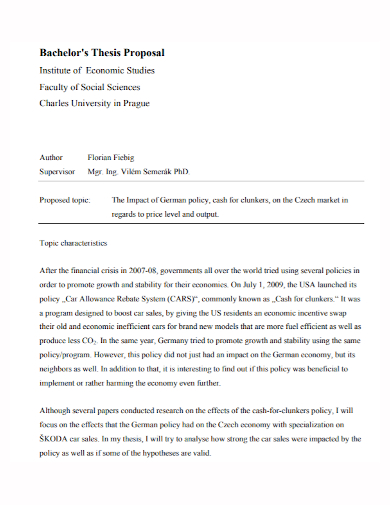
Size: 156 KB
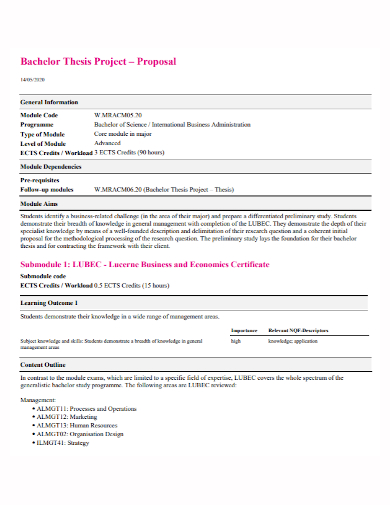
Size: 400 KB
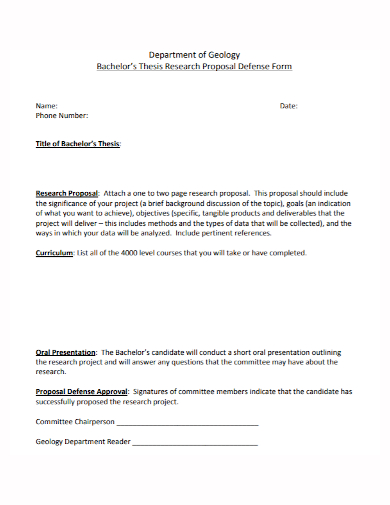
Size: 51 KB
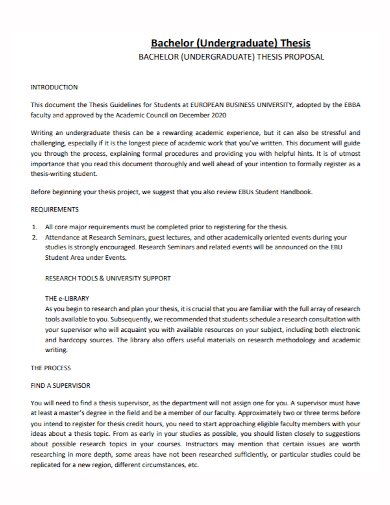
Size: 264 KB
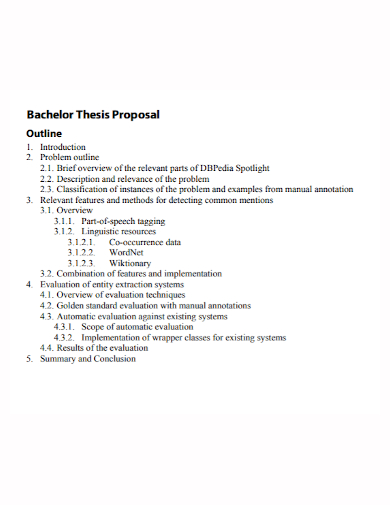
Size: 147 KB
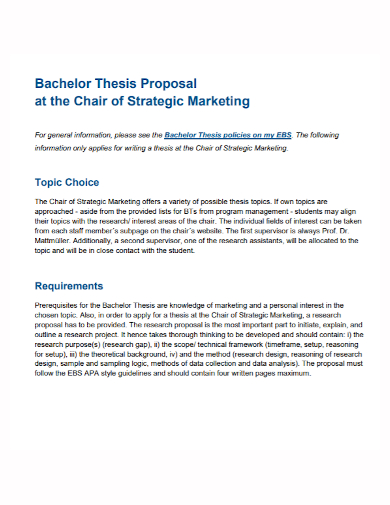
Size: 19 KB
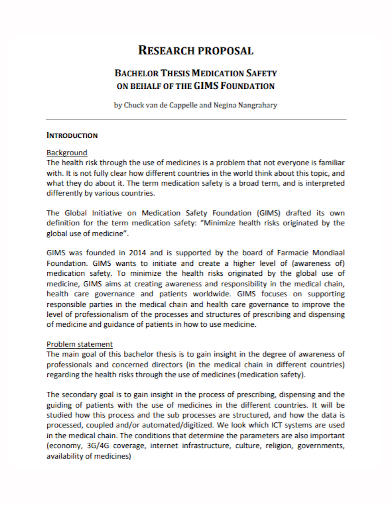
Size: 89 KB
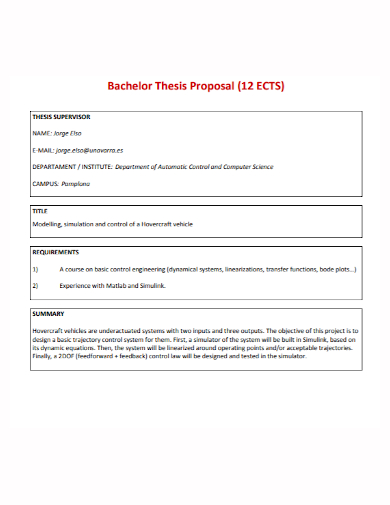
Size: 339 KB
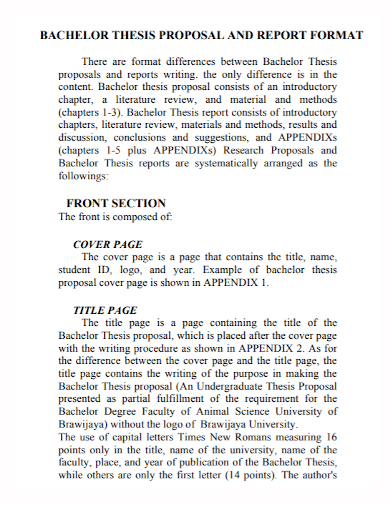
Size: 620 KB
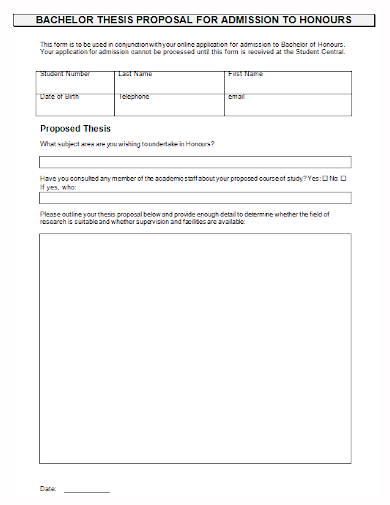
Bachelor proposals are documents that aim to convince academic boards and advisors that your idea and the thesis overall is relevant and important. The document explains how you can effectively write and complete the project. It typically includes a description of the topic that explains the larger purpose of the thesis, a literature review that highlights the most relevant readings and discourses that are related to your topic, a section for the methodology, and the list of your references. For other academic programs however, the structure of a thesis may vary. It can be drafted in chapters that define and specify the concepts of the paper, with a conclusion in the end that ties all the ideas and loose ends together.
A thesis proposal should be able to let these people know why the project or the topic for the thesis is good and relevant, and that you understand all the pieces of information and the studies that are already out there that relates back to your topic. It would also be best to remember that the way you write your proposal will also leave an impression to the advisors. The grammar, the structure, and its contents can make a very significant difference in whether or not your proposal will be approved or rejected.
You can think of thesis proposals as elaborate marketing documents used to promote and present all the ideas of your project to the panel or board of advisors so that they can approve the research and development of your paper. We want them to approve your study, so it would be very best to write the thesis proposal specific to the topic that you chose. You can speak to them through this proposal, and make them realize that what you want to happen is aligned with their own goals. Listed below are the elements that your bachelor thesis proposal should be able to contain.
- The document should begin with a title page containing the author of the paper, institution, department, the research mentor if there is, and the date of when the document was presented.
- The abstract is your brief summary of the proposal with only less than 200 words. It should present a brief introduction of the issue that your thesis works around with, and the key statement of the thesis. It should also present a summary of how you plan to address this issue that you have identified.
- The introductory section of your proposal should present the overall context of your study and capture the interest of your readers. It has to explain the background of your paper starting from a broad picture to a much narrower point of view. Write the introduction in a level that is easy to read and comprehend, even by readers that have the same educational level as you have.
- Write your thesis statement in just a couple words. It should be able to capture the essence of your study with the scope and the limitations of your topic.
- You should be able to present the overall approach that you are planning to take for the development and research of your thesis. Present the strategies that you are planning to take, the materials that you need, procedures, methods that will be put in place, calculations, equipment, etc. Basically just the internal components of your thesis.
- Present the initial results that you have gathered during the early researches of your study. Explain how they fit into the bigger framework of your thesis.
- List down the stages of your project in a tabulated format. Include the deadlines that you will set for the completion and note the initial progress that you have made.
- State why the research is important and what new knowledge will be uncovered by the study.
- Lastly, always remember to cite the ideas, concepts, texts, and dates that you have extracted from related literature. The las thing you need is plagiarizing other’s works. And follow a uniform and assigned citation format.
A thesis is usually composed of an abstract, introduction, literature review, methods, results, discussion, and conclusion.
The difficulty in the writing process of a thesis heavily depends on how an individual might tackle the task. Writing a 100-page thesis might be overwhelming, but you can easily mitigate the fatigue by having a proper and well organized time and resource management. Remember that the single best thing you can do is to not make it even harder for yourself.
- Architecture
- Human resources
Writing a thesis might be the most challenging assignment that a student has to accomplish before they can finally move on to being a part of the profession that they chose. That is why we’re here, and trying our best to help you out. For more tips and templates, be sure to browse around our website.
Related Posts
Free 38+ letters of recommendation for student, free 34+introduction letter samples, free 22+ sample cover letter, free 20+ sample restaurant business plan, free 11+ statement of purpose samples, free 11+ education cover letter templates, free 11+ sample elevator pitch, free 10+ juice bar business plan templates, free 7+ graduation program templates, free 38+ sample recommendation letter, free 34+ sample report writing format, free 29+ sample cover letter, free 13+ product launch plan templates, free 9+ operational plan for cleaning services, free 8+ sample formal letter layout, how to make a company profile, free 10+ monograph samples, free 90+ sample letter, free 59+ sample letter of intent.
13+ SAMPLE Bachelor Thesis Proposal in PDF | MS Word
Bachelor thesis proposal | ms word, 13+ sample bachelor thesis proposal, what is a bachelor thesis proposal, elements of a bachelor thesis proposal, tips on bachelor thesis proposal, how to write a bachelor thesis proposal, how long should a thesis statement be, how can a thesis be good.
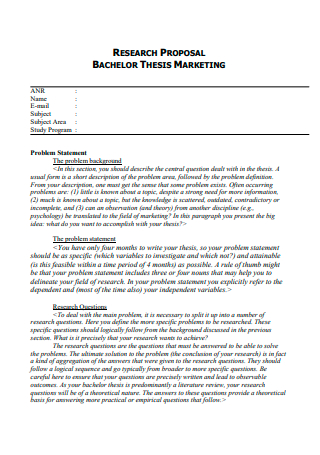
Bachelor Thesis Marketing Research Proposal
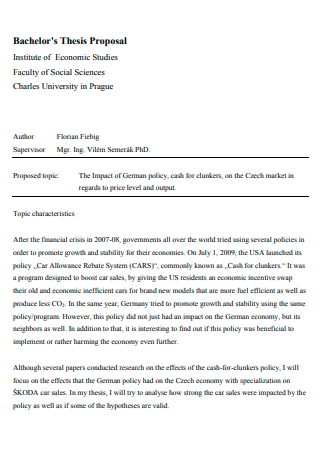
Bachelor Thesis Proposal Template
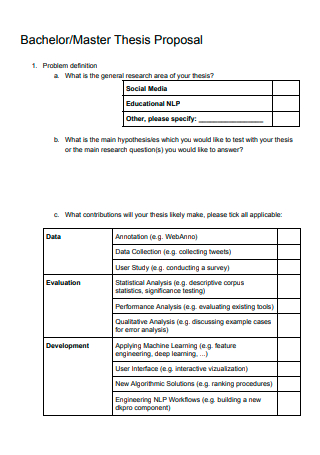
Basic Bachelor Thesis Proposal

Bachelor Thesis Project Proposal
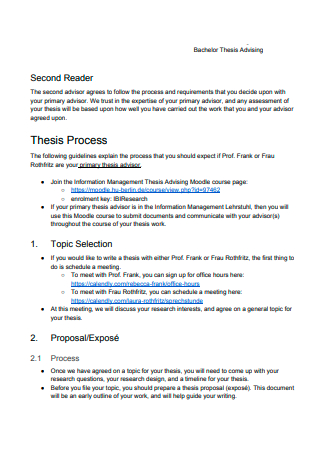
Bachelor Thesis Advising Proposal
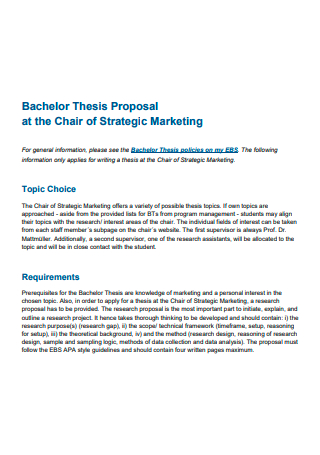
Bachelor Thesis Proposal Example
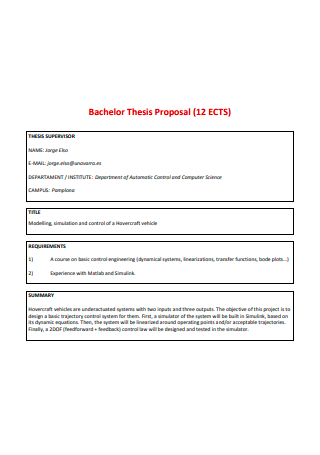
Simple Bachelor Thesis Proposal
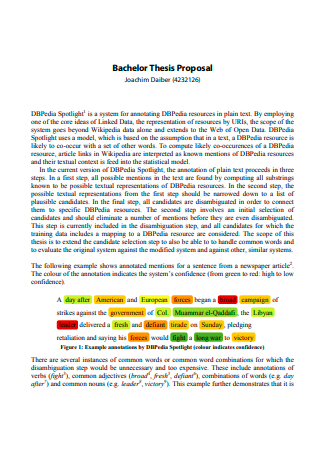
Printable Bachelor Thesis Proposal

Bachelor Thesis Research Proposal
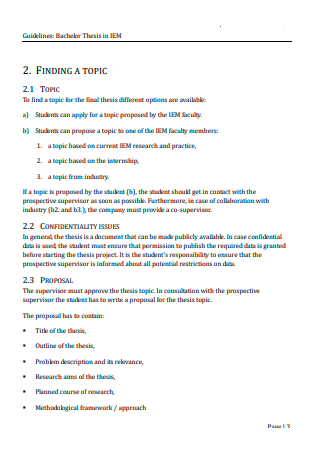
Standard Bachelor Thesis Proposal
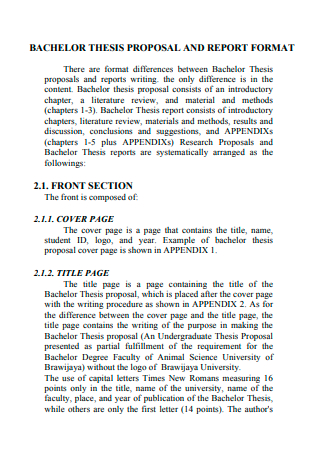
Bachelor Thesis Proposal and Report Format
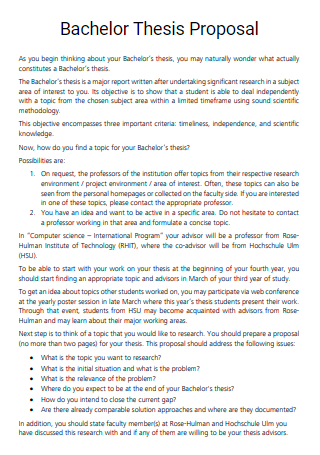
Formal Bachelor Thesis Proposal
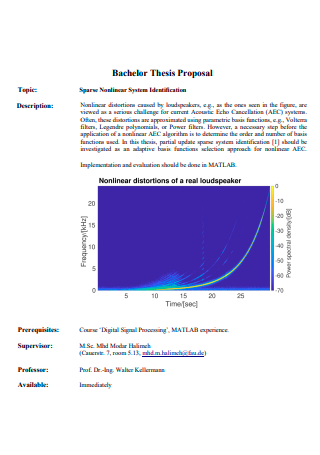
Bachelor Thesis Proposal in PDF
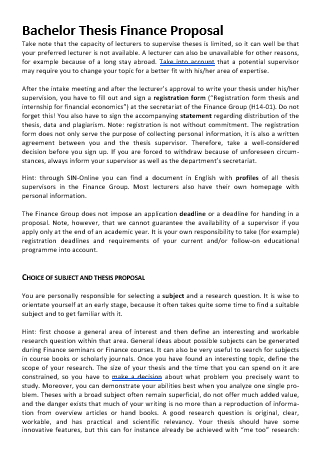
Bachelor Thesis Finance Proposal
Step 1: create an outline and think of a problem, step 2: gather related literature, step 3: write your rationale, step 4: state your research methodology, step 5: cite your references, share this post on your network, file formats, word templates, google docs templates, excel templates, powerpoint templates, google sheets templates, google slides templates, pdf templates, publisher templates, psd templates, indesign templates, illustrator templates, pages templates, keynote templates, numbers templates, outlook templates, you may also like these articles, 25+ sample construction company proposal in ms word.

Navigating the intricate world of construction demands a seasoned company with a proven track record. Our comprehensive guide on the Construction Company Proposal is your blueprint to understanding the…
8+ SAMPLE Drama Proposal in PDF

Julia Child said: “Drama is very important in life: You have to come on with a bang. You never want to go out with a whimper. Everything can have…
browse by categories
- Questionnaire
- Description
- Reconciliation
- Certificate
- Spreadsheet
Information
- privacy policy
- Terms & Conditions

IMAGES
VIDEO
COMMENTS
Writing a proposal or prospectus can be a challenge, but we've compiled some examples for you to get your started. Example #1: "Geographic Representations of the Planet Mars, 1867-1907" by Maria Lane. Example #2: "Individuals and the State in Late Bronze Age Greece: Messenian Perspectives on Mycenaean Society" by Dimitri Nakassis.
Gather all the necessary information before you start writing, and stick to formats that highlight the value of your proposal. The usual flow of writing a thesis proposal is as follows. 1. Outline. Start by coming up with a detailed description of the major points you'll be making in your thesis. 2.
A thesis proposal is a document that outlines the thesis topic, defines the issues that the thesis will address, and explains why the topic warrants further research. It should identify a problem and provide a proposed solution to that problem. Proposals representative of the sciences (both hard sciences and social sciences) should generally ...
Step 2 - Know the Proposal Structure. Familiarize yourself with the structure of a proposal. The major sections usually include an introduction, methodology, significance, data explanation, conclusions, and references. Understanding this structure is key to a well-organized proposal.
In the most general sense, a thesis proposal is "a document that presents a case for an idea and the action one proposes with respect to it." (Krathwohl, 1988:12, emphasis added) Its purpose is "to justify what you plan to do in order to gain approval for it." (Thornquist, 1986:3, emphasis added)
A good thesis has two parts. It should tell what you plan to argue, and it should "telegraph" how you plan to argue—that is, what particular support for your claim is going where in your essay. Steps in Constructing a Thesis. First, analyze your primary sources. Look for tension, interest, ambiguity, controversy, and/or complication.
1 Introduction to How to Write a BA Thesis, Second Edition 9 2 Useful Nuts and Bolts 13 3 More Nuts and Bolts 22 II. FRAMING YOUR TOPIC 4 Taking Effective Notes and Avoiding Plagiarism 41 5 How to Build a Reading List 70 6 Refining Your Topic, Writing a Proposal, and Beginning Research 76 III. CONDUCTING YOUR RESEARCH
Abstract. This is a summary of the entire proposal. Define the topic of the proposal. The topic is the title of the project and gives the reader a general idea of what the thesis is all about. Write the introduction. The introduction helps to bring out the main issues in the thesis as well as its significance.
A bachelor thesis proposal is a short document of about 5 pages text that typically includes: 1. Problem statement 2. Research question(s) 3. Conceptual framework 4. Methods 5. Planning Note that sometimes the exact structure of a proposal can be different than the above. The above is a
Research Proposal Example/Sample. Detailed Walkthrough + Free Proposal Template. If you're getting started crafting your research proposal and are looking for a few examples of research proposals, you've come to the right place. In this video, we walk you through two successful (approved) research proposals, one for a Master's-level ...
Creating an academically strong thesis proposal sets the foundation for a high-quality thesis and helps garner the attention of a well-respected thesis director. The proposal is normally between 15 to 25 pages in length. The CTP tutorial is not a course in the traditional sense. You work independently on your proposal with your research advisor ...
Dissertation & Thesis Outline | Example & Free Templates. Published on June 7, 2022 by Tegan George.Revised on November 21, 2023. A thesis or dissertation outline is one of the most critical early steps in your writing process.It helps you to lay out and organize your ideas and can provide you with a roadmap for deciding the specifics of your dissertation topic and showcasing its relevance to ...
The cleanly-formatted Google Doc can be downloaded as a fully editable MS Word Document (DOCX format), so you can use it as-is or convert it to LaTeX. Download The Dissertation Template. Download Grad Coach's comprehensive dissertation and thesis template for free. Fully editable - includes detailed instructions and examples.
Template for Bachelor- and Master thesis proposals . Department of Conservation Biology, University of Göttingen , 01. st. ... For thesis including lab or field experiments, or pseudo-experimental approaches at the landscape scale (e.g. comparing different management categories), it is usually required to phrase clear, testable and ...
Abstract. the abstract is a brief summary of your thesis proposal. its length should not exceed ~200 words. present a brief introduction to the issue. make the key statement of your thesis. give a summary of how you want to address the issue. include a possible implication of your work, if successfully completed.
Bachelor of Science in Biological Sciences. Bachelor of Science (BS): The BS is designed for students who wish to delve more deeply into the field of their major through additional electives, participation in scientific research, and completion of a BS thesis that summarizes their research. ... Submit a 1-2 page (single-spaced) thesis proposal ...
Although a thesis in undergraduate programs is not too much of a norm, some practices may still require their students to write one before completing the course, especially those who want to move on and take a master's degree. Bachelor Thesis Proposal. 10+ Bachelor Thesis Proposal Samples. 1. Bachelor Thesis Proposal. 2.
A bachelor thesis proposal is an academic document written by undergraduate students to discuss and propose feasible research projects about a particular topic or subject that is beneficial to a specific group of stakeholders. Most people involved in writing this type of paper are university students as their final academic requirement before ...
HONORS COLLEGE THESIS PROPOSAL . The success of an honors thesis (BUS 4996) is related to the amount of advance planning devoted to the thesis. Therefore, it is the student's responsibility to work closely with a faculty member within the Grossman School of Business to develop a thorough plan for undertaking and completing an honors thesis.